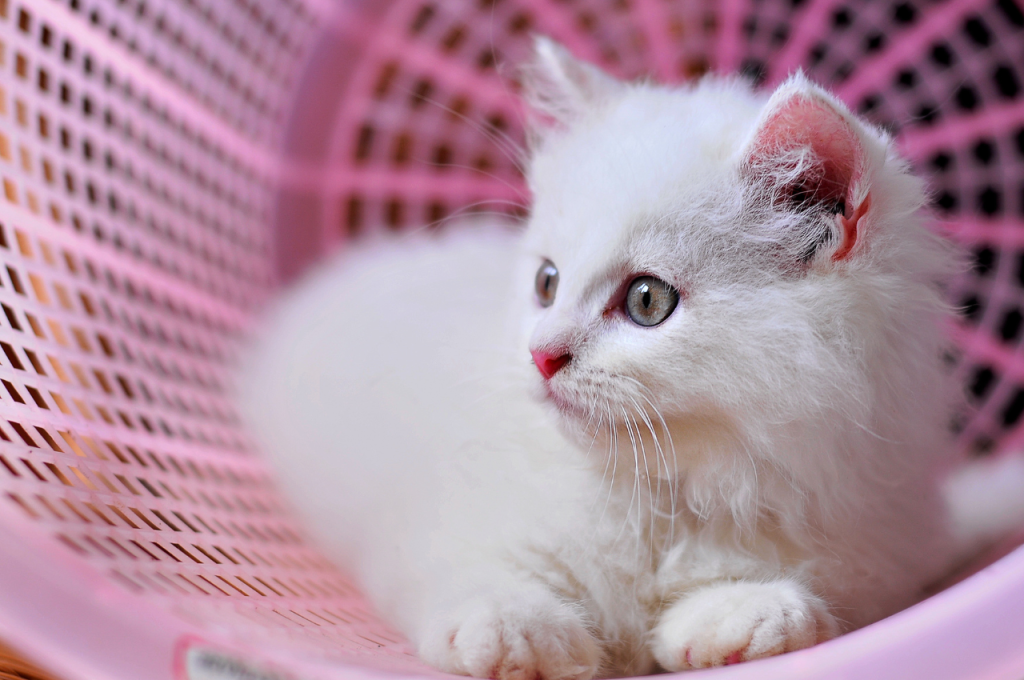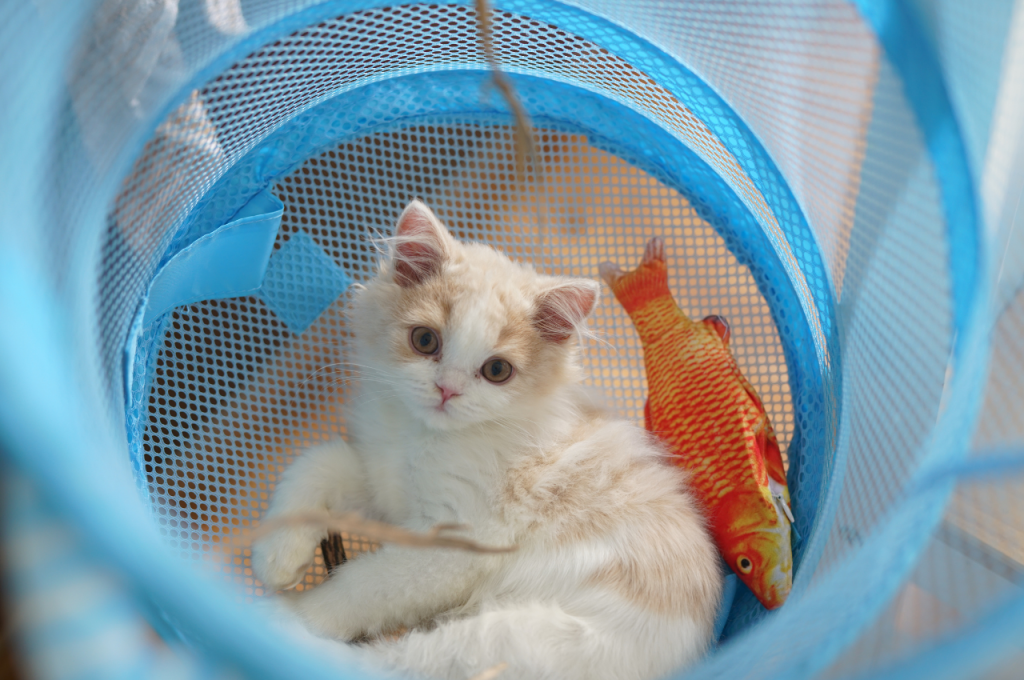If your kitten falls, signs of injury include limping, lethargy, and lack of appetite. After a fall, monitor your kitten for any signs of distress or discomfort.
It’s important to assess the situation and seek veterinary care if necessary. In this blog post, we’ll discuss the signs that indicate your kitten has been injured after a fall and what you should do to help them recover. We’ll also provide tips on how to prevent falls in the future. With proper care and attention, your kitten can recover from a fall and continue to thrive.
Initial Reactions Post-fall
When your adorable little kitten takes a tumble, it’s natural to feel a surge of panic and worry. As a responsible pet parent, your immediate concern is ensuring that your furry friend is okay. Understanding the initial reactions to look out for after a fall can help you determine if your kitten requires immediate medical attention or if they will likely recover on their own.

Checking For Visible Injuries
After a fall, the first step is to carefully examine your kitten for any visible injuries. Keep in mind that kittens are agile and resilient creatures, but accidents can still happen. Look for any signs of bleeding, cuts, or bruises. Pay close attention to their limbs, head, and body. If you notice any wounds or swelling, it’s crucial to seek veterinary assistance as soon as possible.
Observing Behavior Changes
Aside from visible injuries, it’s essential to keep an eye out for any behavior changes in your kitten after a fall. Cats are known for their independent nature, so any noticeable deviation from their normal behavior could indicate an issue. Observe their movements and activities closely. Look for signs of limping, difficulty in walking or jumping, or excessive hiding. Changes in appetite, excessive meowing, or unusual aggression may also indicate that your kitten is in distress.
Remember, each cat is unique, and their response to a fall may vary. Some kittens may bounce back quickly, while others may require medical attention. If you have any doubts or concerns about your kitten’s well-being, it’s always best to consult with a veterinarian. Their expertise will provide you with the guidance and reassurance you need to ensure your furry friend receives the care they deserve.
Immediate Steps To Take
After a fall, it’s crucial to assess your kitten’s condition and take immediate steps to ensure their well-being. Here are the immediate steps to take:
Comforting Your Kitten
First, gently pick up your kitten and place them in a quiet, warm, and comfortable space. Provide a soft blanket or cushion for them to rest on. Speak to them in a soothing tone to offer comfort and reassurance. Keep them isolated from any other pets to minimize stress and allow them to rest.
When To Call The Vet
If your kitten shows signs of distress, such as limping, difficulty breathing, or loss of consciousness, seek immediate veterinary care. Additionally, if they exhibit symptoms like vomiting, diarrhea, or refusal to eat or drink, contacting the vet is necessary. Observe your kitten closely for the next 24 hours for any unusual behavior or physical changes, and if you notice anything concerning, contact your veterinarian promptly.
Understanding Common Injuries
Accidents happen, and if your kitten has taken a tumble, it’s important to know how to assess their condition. Understanding common injuries that may occur after a fall can help you determine if your kitten is okay or in need of immediate veterinary attention.
Limping Or Difficulty Walking
One of the most noticeable signs of injury after a fall is limping or difficulty walking. If your kitten is favoring one leg or seems to be in pain when putting weight on a specific limb, it could indicate a sprain, strain, or even a fracture. Keep an eye out for swelling or deformities in the affected area as well.
Signs Of Internal Injuries
While external injuries may be more visible, internal injuries can also occur after a fall. It’s essential to be aware of the signs that may indicate internal damage. Look out for symptoms such as difficulty breathing, coughing, vomiting blood, pale gums, or a distended abdomen. These signs could suggest internal bleeding or organ damage.
If you notice any of these symptoms or suspect that your kitten may have sustained an injury from a fall, it’s crucial to seek veterinary care immediately. Remember, even if your kitten appears to be behaving normally, some injuries may not be immediately apparent and can worsen over time.
Monitoring Eating And Drinking Habits
Monitoring your kitten’s eating and drinking habits after a fall is crucial to ensure its well-being. Changes in appetite and hydration concerns are key indicators to watch for.

Changes In Appetite
Observe your kitten’s food intake closely. Look for any significant decrease in appetite or refusal to eat. Monitor for any signs of discomfort while eating.
Hydration Concerns
Check if your kitten is drinking water regularly. Watch out for any signs of dehydration such as dry gums, lethargy, or loss of skin elasticity.
Behavioral Signs Of Distress
When a kitten has experienced a fall, it’s important to carefully observe for any signs of distress. Understanding the behavioral cues that may indicate your kitten is not okay after a fall can help you provide the necessary care and seek prompt veterinary attention if needed.
Hiding And Withdrawal
If your kitten is hiding or withdrawing more than usual after a fall, it could be a sign of distress. Hiding and withdrawal can indicate that your kitten is feeling unwell and may be in pain.
Vocalization Changes
Vocalization changes such as excessive meowing, whimpering, or unusual vocal sounds can be an indication that your kitten is experiencing distress after a fall. Pay attention to any unusual vocalizations as they can be a sign of pain or discomfort.
Physical Examinations At Home
Assessing your kitten after a fall with a physical examination at home is crucial. Look for any signs of limping, pain, or unusual behavior to ensure your kitten is okay. If in doubt, always consult your veterinarian for proper evaluation and care.
How To Safely Inspect Your Kitten
To inspect your kitten at home, gently palpate the body for any signs of pain or discomfort.
What To Look For
Check for limping, swelling, bruising, or any unusual lumps or bumps. Performing a physical examination at home can help you assess your kitten’s condition after a fall. Inspect your kitten’s body for signs of injury or distress. Look for limping, swelling, bruising, or lumps. Palpate the body gently to check for pain or discomfort.
Professional Veterinary Care
When it comes to your kitten’s health, professional veterinary care is essential.
Deciding To Visit The Vet
If your kitten shows signs of distress or injury after a fall, it’s crucial to seek immediate veterinary attention.
- Rapid breathing or panting
- Limping or inability to walk
- Bleeding or visible wounds
What To Expect During The Visit
During the vet visit, the veterinarian will conduct a thorough examination to assess your kitten’s condition.
- Physical examination to check for injuries
- X-rays to detect internal damage
- Neurological assessment to evaluate brain function
Preventing Future Falls
To prevent future falls, it’s crucial to create a safe environment for your kitten. By implementing certain measures, you can help minimize the risk of accidents and ensure your little feline friend’s well-being.

Safe Spaces For Kittens
Designate specific areas in your home where your kitten can play and explore safely. Consider setting up a cozy corner with soft blankets and toys to keep your kitten entertained and engaged.
Training And Environmental Adjustments
- Teach your kitten to avoid high ledges and precarious surfaces.
- Install barriers or gates to restrict access to areas where falls are more likely to occur.
- Secure windows and balconies to prevent accidental falls.
Conclusion
Always monitor your kitten closely after a fall. Watch for any changes in behavior or physical symptoms. It’s essential to seek veterinary care if you notice any concerning signs. Prioritize your kitten’s health and well-being for a happy and healthy feline companion.
